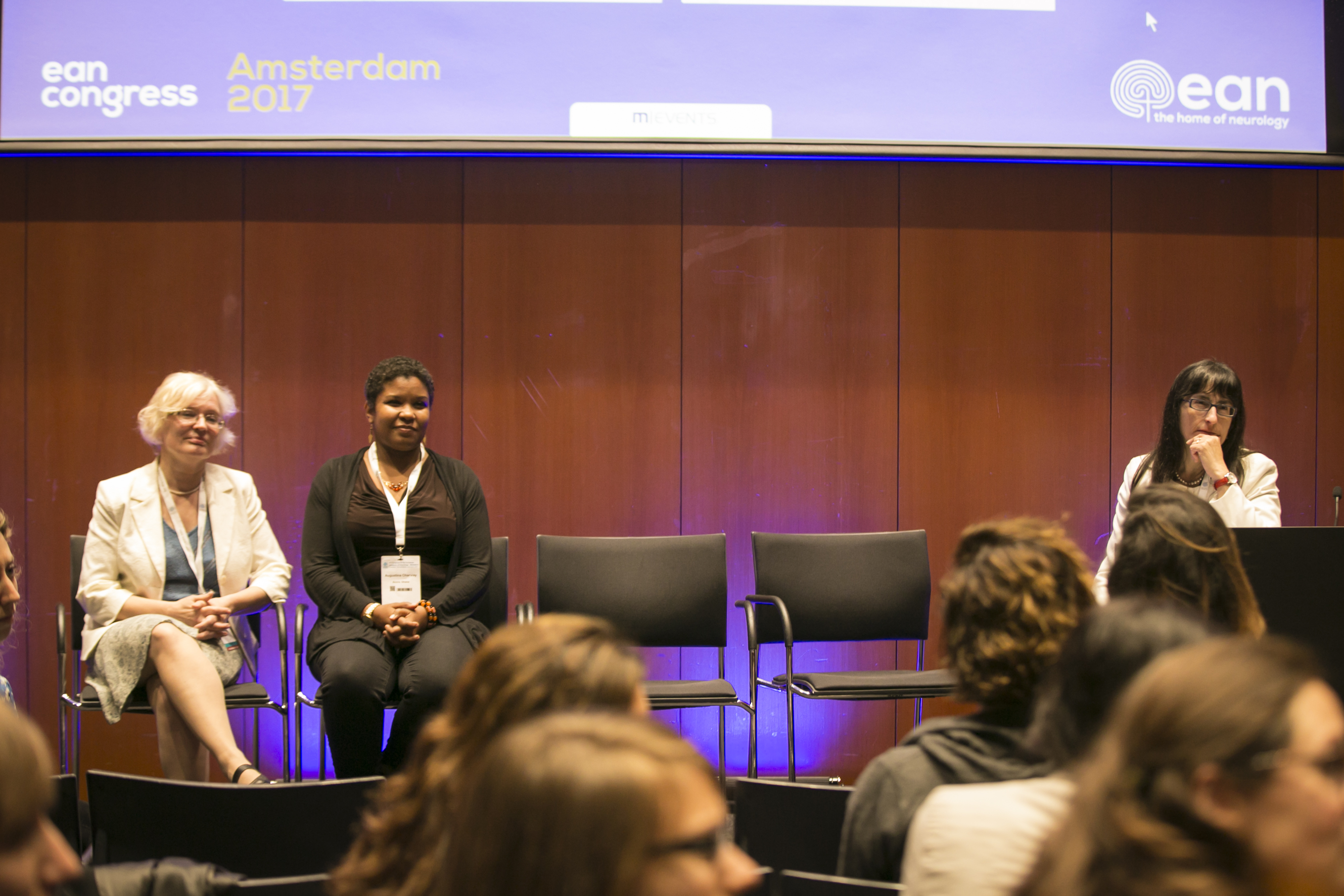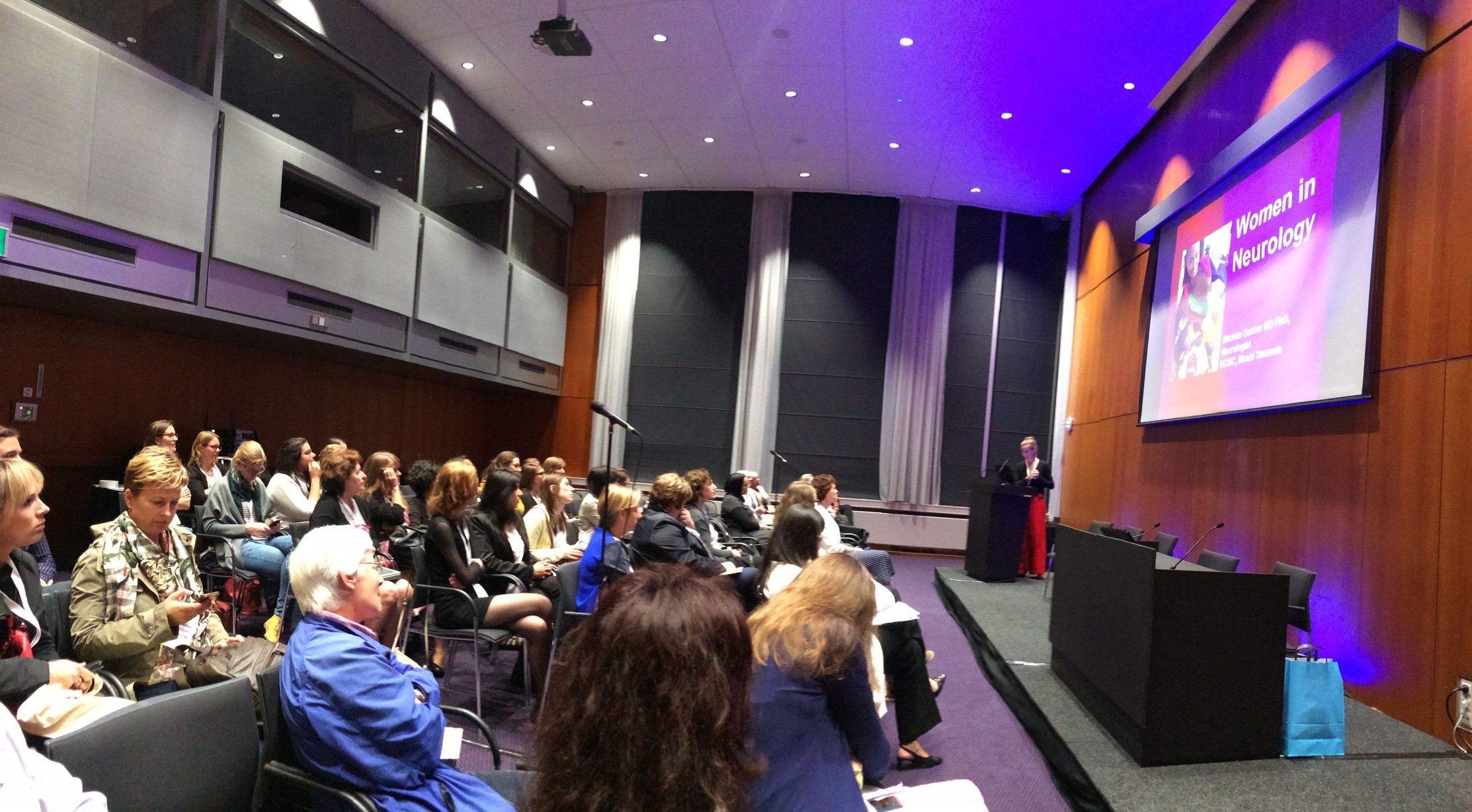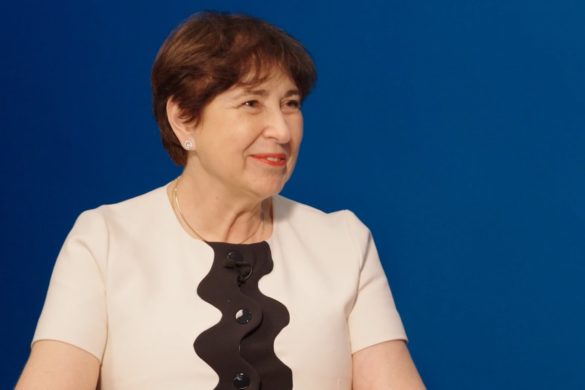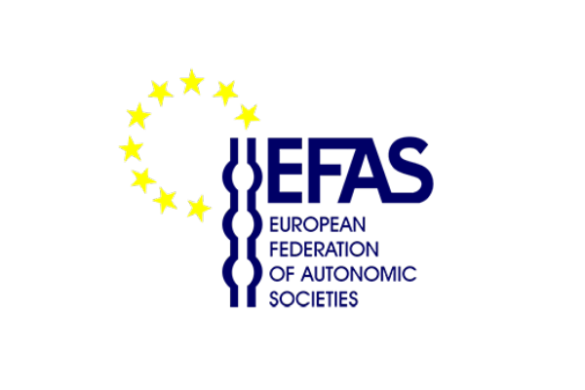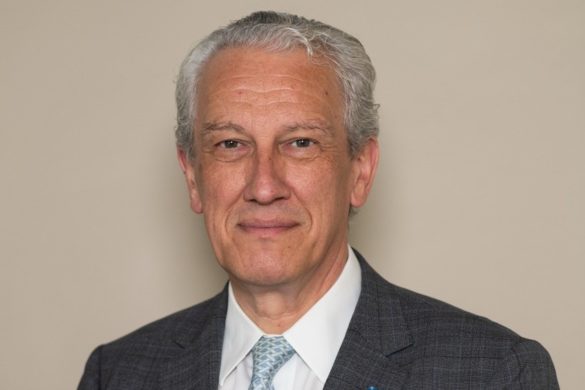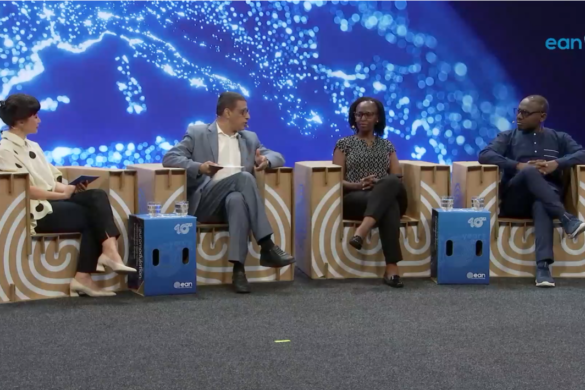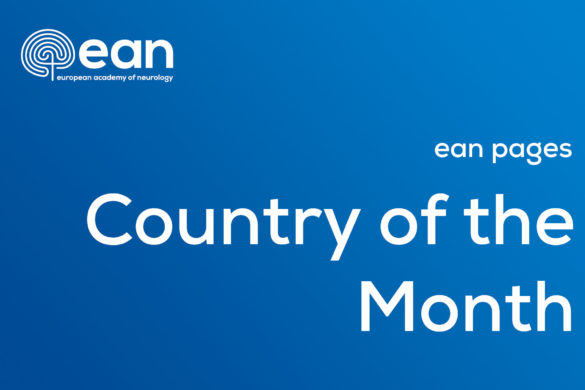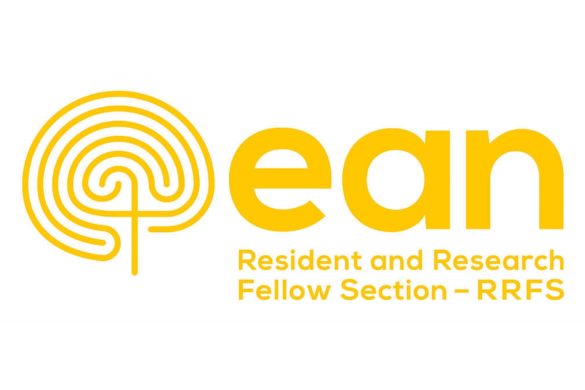The third Women in Neurology Session: is the landscape really changing with respect to the gender gap?
The “Challenges in for Women in Neurology” lunch session took place for the third time at EAN 2017 and featured three successful practitioners from different fields.
The first speaker was Dr. Marieke Dekker, a Dutch neurologist working in Tanzania, who outlined the current situation for African neurologists. She highlighted the importance of having a high level of knowledge of clinical neurology in a country where access to investigations such as MRI, CT and other neurophysiological testing facilities is very limited. She told the audience that “the ophthalmoscope is nearly always the only instrument available to make a diagnosis in our clinical practice”. She pointed out the health issues that African women face during their lives, especially those related to pregnancy and the delivery period. Dr Dekker also spoke about the challenges she is confronted with as a neurologist and mother of six children, as well as moving from the Netherlands to Tanzania.
The second speaker was Dr. Augustine Charway Felli from Accra, Ghana, who talked about her amazing career which has taken her from Russia – where she studied medicine and obtained her PhD – to Ghana – where she is currently working as one of the six neurologists in the whole of the country. Particularly interesting was the fact that when she returned to Ghana in 2007, there was only one practicing neurologist in the whole country. The doctor-patient ratio in Ghana is 1:40,000. In 2015 she founded the African Academy of Neurology and became the only female on its board. However, two women will sit on the next board for the period 2017-19. She is changing the face of neurology and medicine in Ghana, and she encouraged the audience to drive forward ideas and professional opportunities because she believes that we can change the world of neurology if we really believe in this challenge. She discussed the problems of sexism, ageism and racism faced by professional women in Africa. As a mother of two she explained the everyday difficulties she is confronted with in finding a balance between her work and family commitments. The take-home message from Dr. Charway Felli’s talk was a quote from a poem by Maya Angelou: “You may write me down in history, with your bitter, twisted lies, you may tread me in the very dirt, but still, like dust, I’ll rise.”
Prof Pille Taba from Tartu, Estonia concluded the workshop with an overview of the current situation of neurology in Estonia, which has 100 specialists and six centres with neurological departments. She discussed the main issue for female academics in medicine, namely the requirement for multitasking skills. Women are expected to take care of family members (parents, children and husbands), and work in clinical practice as well as education (teaching) and research. The obvious question is: how can women have their own lives? She shared some ideas on how to overcome these challenges, talking about her children and grandchildren and being a professor of neurology. The main issue for junior female neurologists is the difficult choice between children, training in neurology and a PhD. She told the audience how she has tried to deal with these issues in her private and professional life. Key challenges and factors to consider are finding a good supervisor; starting research during a medical degree; studying, not working until morning but rather starting early in the morning; learning to make choices but also how to say no; and finding time for pleasure and recharging your batteries!
At the end of this workshop the sentence that was going through my mind was “never give up!”
I look forward to seeing you at the fourth “Challenges for Women in Neurology” session in Lisbon!
By Antonella Macerollo
